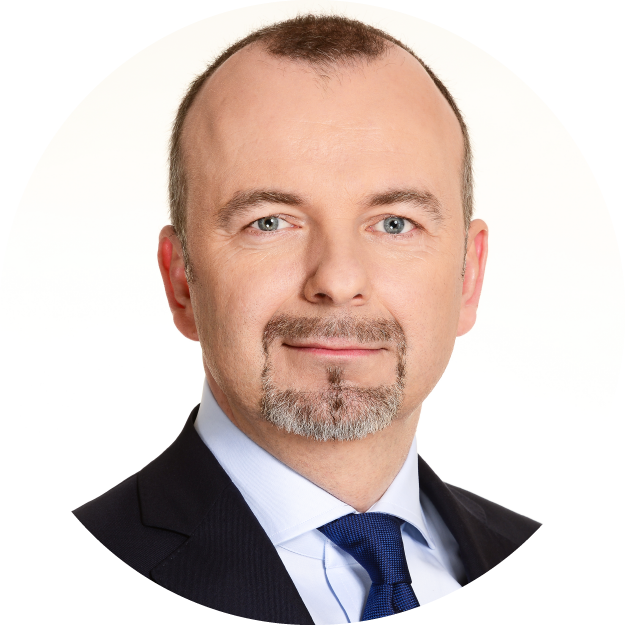International Communications Consultancy Organisation (ICCO), an umbrella body that represents PR trade bodies in 66 countries including the PRCA, has appointed Hill+Knowlton Strategies’ Poland Grzegorz Szczepanski as its vice president.
He is the founder and first President of the Polish Public Relations Consultancies Association, which he brought into the ICCO network in 2001.
The biggest challenge for the PR industry? “The time has come to restore PR to the essence of public relations, that is to managing relations”, says Grzegorz Szczepanski.
Grzegorz Szczepański, President of Hill and Knowlton Strategies Poland, Vice-President of ICCO

Magda Wosińska, Prowly Magazine: First of all, I’d like to congratulate you on your appointment as Vice-President of the ICCO. It is the first time a Polish national has played such an important role in the structures of this organization. What kind of message does it send to our market?
Grzegorz Szczepański, President of Hill and Knowlton Strategies Poland, Vice-President of ICCO: The appointment of a Pole is proof of the fact that we’re not a second-rate market, but a mainstream one. This can be seen in our presence in international competitions where we win a large number of awards every year.
M.W.: In an interview for polish vortal PRoto.pl you mentioned that PR specialists have much more to offer to the world than effective communication. You said that the industry deserves a permanent place at corporate tables for decision-makers, governments and major international organizations. “For this to happen, we should restore PR to public relations,” you added. So the point is to move away from positioning on the communications side of PR?
G.Sz: Yes, I think the time has come to restore PR to the essence of public relations, that is to managing relations. For several decades PR has been dangerously flirting with communication, which I see as only as means to an end for PR, not the end itself. We are in the ocean of professional communication industries. That’s why we’ve been put into one bag with advertising and marketing and lost what was our unique value and in summarized by the word “relations”.
M.W.: Then how would you define PR?
G.Sz.: I understand PR as the art of shaping mutually beneficial relations between different entities of the same socio-economic ecosystem. Permanent relations, meaning not only for the time of launching a product on the market or an election campaign. With this assumption, the debate about the role of our profession is taken to a whole new level.
For years, the ambition of our industry has been to occupy a permanent place at the desks of decision-makers, from company boards to supervisory boards and international organizations such as the United Nations. There is no chance of that in a scenario in which we position ourselves only as specialists in communication.
I’ve turned to my colleagues from ICCO with a manifesto in which I made a strong plea for us to start talking about the work of a PR specialist more ambitiously—keeping in mind that this profession is best predisposed to shape our new future based on lasting and positive relations.
M.W.: I remember my conversation with the owner of one of the oldest PR agencies in Poland, who advised Boeing in the past. His services came down to participating in Board meetings. I understand that it is still not a common practice in Poland?
G.Sz.: No, not in Poland. Arthur Page, one of the founding fathers of PR, instilled an approach that no corporate strategy could be implemented without considering its impact on society. This approach has become popular on foreign markets, but unfortunately not yet with us.
I regret that in Poland we are very strong in terms of competence, but still tiny in terms of business. Just look at the figures. The public relations market in Great Britain today is worth GPB 15 billion compared to only EUR 100 million in Poland.
M.W.: Adam Łaszyn, CEO of Alert Media Communications, shared an interesting thought. In one of his interviews, he pointed out that the role of PR will be to try to contain hate speech and fake news on the internet. It’s a real advisory tour the force, and something digital agencies lack. It is, however, present in the PR industry, which always gets called in when crises appear.
G.Sz.: I’m so glad Adam’s talking about this. Please pay attention to the fact that misinformation or finally fake news are also communication techniques. If we continue to talk about the fact that we are specialists in communication, we will never break away from the abuse, which is comparing PR to propaganda.
M.W.: At this year’s Cannes Lions, PR specialists at the round table talked about the measures of the effectiveness of PR campaigns. In Poland, a similar discussion was held on the occasion of the Effie Awards. The new category “Positive Change: PR-Led and Employer Branding” carries hope that in the case of PR we will talk about the real impact on business. The question remains: how and what to measure? And can PR specialists really establish this?
G.Sz.: We have three main measures in PR and for thirty years nothing has changed here. These are, of course, output, outcome and impact.
Output is the simplest measure. We understand it as the number of mentions of a brand, a product, a number of journalists present at a press briefing. So, in the case of the simplest order, we are able to set ourselves a goal, the so-called KPI. The most common “output-based” way of measuring effectiveness is e.g. benchmarking. Here, the data is provided by media monitoring companies, for instance. Contrary to appearances, this way of measuring effectiveness does not apply only to small players. One of the large American tech companies measured its global performance only two years ago exclusively in terms of output.
Most PR specialists like the outcome-based approach the most, meaning measuring the extent to which campaigns implemented through them have translated into a change in attitudes, preferences, or even the clients’ business.
M.W.: An examples?
G.Sz.: Let us assume that our performance indicator will be to attract more vaccine supporters and that this will be the most important parameter from our client’s business perspective of the client. We start with an analysis of how many people are in favor and how many are against and where the room for discussion begins. The agency and the client determine to what extent they want to improve any of these parameters.
Then we have a third indicator, namely impact. The most difficult to achieve, but the easiest to enforce because of the zero-one approach to the previously defined expected result. Here you can find all kinds of lobbying projects. We agree, for example, that our actions will result in the adoption of specific legislation in Parliament. Regardless of the choice of metric, at the end it is about increasing the number of protagonists of our solution and reducing the number of its antagonists.
M.W.: And what are your most important tasks in the near future?
G.Sz.: I would like there to be more real PR in Poland and in the world at the institutional level. I’m very worried about the current domination of propaganda in almost every corner of the globe. Together with my colleagues from ICCO, we plan to initiate a round of meetings at the level of international institutions, from the Council of Europe to the UN. We want these bodies to become a permanent place for real PR, and our perspective to be included in the most important discussions concerning the global perspective. If the Amazonian forests are burning and we do not know how the audience gets information on this subject, here we see a place for industry organizations such as ICCO, which will organize this dialogue and create a space for professional conversation for all interested parties.


